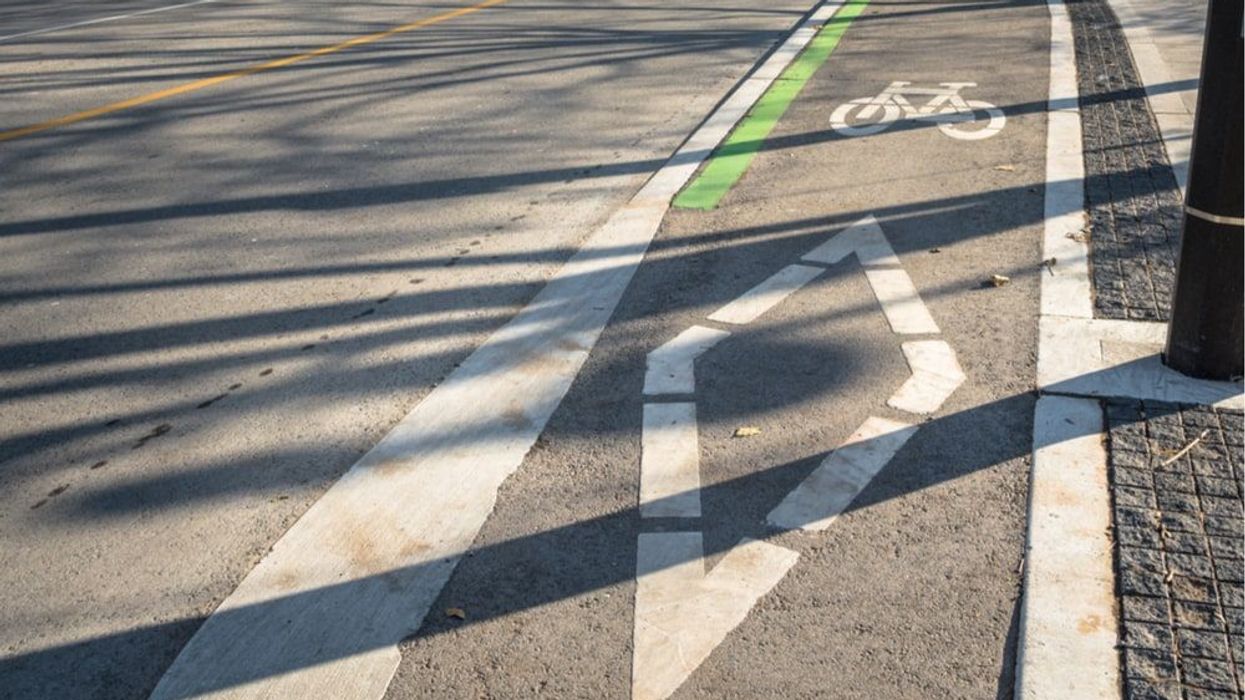Toronto city staff are recommending that temporary bike lanes on Yonge Street be made permanent, despite calls for their removal from some residents and businesses in the area.
Running along Yonge Street between Bloor Street and Davisville Avenue, the bike lanes were installed in July 2021 as part of the ActiveTO "Complete Street" pilot program that also brought curb lane patios to the area. In April 2022, City Council elected to extend the pilot until January 2023.
In the 18 months that the bike lanes have been in place, the City says cycling trips along the Midtown corridor have increased between 57% and 250%, depending on the intersection and the season, while foot traffic is up between 59% and 145%. The data is outlined in a report that will go before the city's Infrastructure and Environment Committee on January 30.
Although vehicle travel times were "initially impacted" by the pilot and increased by over two minutes, city staff said adjustments, including new left-turn lanes and side-street loading areas, have alleviated congestion. Northbound travel times are now generally just 20 to 69 seconds longer than the pre-pandemic baseline, while southbound trips are 30 seconds faster to 55 seconds longer.
The report also lauds an "increase in support for local businesses," with the number of CaféTO patios in the area more than doubling from 2020 to 2022.
However, several homes and businesses in the area have reportedly placed "no bikes on Yonge" sings in their windows and yards ahead of the report's presentation next week.
Critics, including the Summerhill Residents Association and BeRationalTO, have argued that the bike lanes are under-utilized by cyclists, have increased traffic congestion on Yonge Street, and don't provide "quantifiable" benefits for businesses.
Both organizations have called for their removal, with the latter advocating that they be moved to six-lane Avenue Road instead. A fundraiser created by BeRationalTO, with the intention of stopping the Yonge Street bike lanes, has garnered 21 donations to date, amounting to $2,717 of its $7,500 goal.
"This section of the Yonge corridor cannot support CafeTO, on-street parking, a major TTC line, deliveries, EMS, access to schools, neigbourhoods, and bike lanes," the organization's website reads. "City Council must make the hard decisions to make this area work for the people of Toronto and its residents. You cannot accommodate every every program in this vital corridor."
In contrast, Yonge4All, a group advocating for the bike lanes to be made permanent, have argued that the pilot has made Midtown Yonge safer and more vibrant, while also helping Toronto meet its climate targets.
"We believe that Yonge Street should be welcoming, safe, and accessible for people of all ages and abilities, whether they walk, take transit, drive a car, ride a bike, or use another mobility device," the group's website states.
A petition launched by Yonge4All to make the bike lanes permanent has so far received 7,921 signatures out of its goal of 8,000.





















